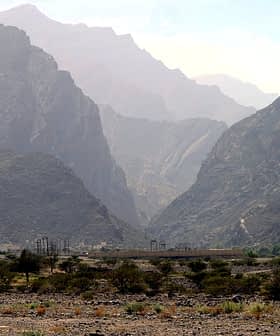 Following the success of India’s first pilot project for olive cultivation in Rajasthan four years ago, the commercial cultivation of olives is all set to begin in this desert state of India. The progress of Rajasthan’s pilot project for olive cultivation had been closely watched by other agricultural states of India. Olive farming brings with it a new promise of transforming the lives of poor Indian farmers, and providing a boost to the local economy.
Following the success of India’s first pilot project for olive cultivation in Rajasthan four years ago, the commercial cultivation of olives is all set to begin in this desert state of India. The progress of Rajasthan’s pilot project for olive cultivation had been closely watched by other agricultural states of India. Olive farming brings with it a new promise of transforming the lives of poor Indian farmers, and providing a boost to the local economy.
Next month, as parts of Rajasthan will grapple with sub-zero winter temperatures, hundreds of large farmers in the state will plant olive saplings on their land for commercial production. Surinder Singh Shekhawat, head of Rajasthan Olive Cultivation Limited (ROCL) that ran the pilot project, says: “After the success of the pilot project, we have decided to rope in progressive farmers for commercial cultivation. We will plant around 200,000 saplings across 650 hectares in Nagaur, Sri Ganganagar, Hanumangarh and Bikaner districts, where results were encouraging.“
Commercial cultivation of olive saplings will begin in January and February, and the total area to be covered for olive plantations is expected to go up to 5,000 hectares over the next three years. Large wheat farmers are flocking to ROCL’s office in Jaipur with a goal to shift a part of their cultivable land from wheat to olive. A number of top olive oil manufacturers in India have also shown interest in the commercial cultivation of olives, considering the growing demand for olive oil in the Indian market.
A local farmer in Rajasthan, the 35-year old Rajendra Singh Shekhawat sums up the current sentiment of farmers towards olive cultivation: “I heard the olive pilot project went off well. I am ready to take the risk of cultivating a foreign crop. If all goes well in the coming three years, I will dedicate more land to olives.” Olive cultivation is expected to fetch about five times the profits that the farmers in Rajasthan currently fetch from wheat on a per hectare basis.








